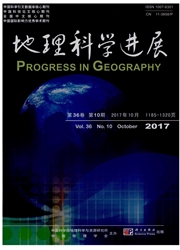

 中文摘要:
中文摘要:
对碳排放与经济、产业系统相互影响机理的研究已成为气候变化领域关注的重点。在对国内外文献进行系统梳理的基础上,论述了经济增长、产业结构与碳排放相互作用的相关内容,并对研究方法进行回顾和总结。研究内容既涉及碳排放的经济学分析、三次产业发展的碳效应、交互关系、碳减排的经济损失等基础分析,又重点关注了低碳经济、低碳城市、国际碳流动等应用领域。研究多采用经济计量学、数理统计、情景分析、模型模拟、投入产出和碳足迹等定量方法,与定性研究相得益彰。研究内容呈现多层次性,理论不断深化,方法趋于多类型综合化,视角逐步向微观层面转向。最后指出今后需要深入研究的方向:完善研究的方法论体系;进行方法创新,增强区域性研究,探索适合中国的研究模式和框架;扩展研究尺度,填补研究空白和薄弱之处。
 英文摘要:
英文摘要:
Against the background of global climate change, studies on the carbon emissions, economic growth and industrial structure interrelate and interact with each other as a whole. Scholars in the global climate change area have been paying more and more attention to the interaction and mechanism effects of the complex system. On the basis of reviews of studies at home and abroad, this paper clarifies the interactive and mutual restraint re- lationship between carbon emissions and the two factors mentions above. The article also reviews and summa- ries relevant research methods on this topic. According to the comprehensive reviewing, the main contents are as follows: economic analysis of the carbon emissions, the relationship study between industrial development and carbon emissions, the economic losses on the carbon emission reduction, and the research on the low-carboneconomy, low-carbon development, urbanization and carbon emissions, and international carbon flow. The main research methods include: econometrics, mathematical statistics, scenario analysis, model simulation, input-out- put analysis, carbon footprint, and so on. The quantitative and qualitative investigations complement each other. As regards to the research progress, the contents shift from basic analysis to practical application; the theories shift from sustainable development and circulation economy to low carbon economy; research methods tends to be integrated; research perspective starts to involve the community, the family and the individual behavior at the micro-scale. In the future, the writers think that the research theoretical system on carbon emissions and econom- ic-industrial system, methodological innovation and regional studies should be enhanced. Simultaneously, the re- search should explore our research models and frameworks that are suitable for China. Further work is expected to be the research scale to fill research gaps and offset weaknesses.
 同期刊论文项目
同期刊论文项目
 同项目期刊论文
同项目期刊论文
 期刊信息
期刊信息
